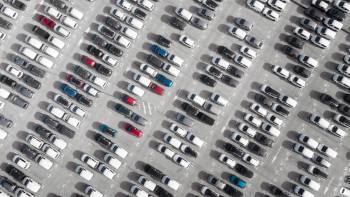A component supplier to Ford and Jaguar Land Rover (JLR) is closing its UK plant after 60 years. Thermal Management Solutions Group (TMS) has informed its workforce that it intends to consolidate production of its specialty thermostats at sites in France and Germany. Growing costs due to Brexit have played a role in this decision. Another factor was the increased complexity of paperwork and distribution.
The pandemic and Brexit have also thrown supply chains into disarray and stalled new car production. As a result of Brexit, imports from the UK are down 56 percent from 2019 to 2021.
The outbreak of war in Ukraine has also impacted the automotive industry, further affecting supply chains and driving up the cost of gasoline and diesel. Automakers were also affected by the conflict between Russia and Ukraine, the previous sources of supply for electrical wires, and the aluminum, palladium, and nickel used in batteries.
As a result, UK car production fell by 41 percent in February, hitting its lowest level since 2009. According to the SMMT (Society of Motor Manufacturers and Traders), urgent action is needed to contain rising energy costs and ensure the sector remains globally competitive.
New challenges posed by the changing regulations
Before the pandemic, Honda had a share of about 10 percent of UK car production. Last year, however, the company announced it would close its plant in Swindon, southern England, due to falling demand for its cars across Europe. It said the move was not due to Brexit.
In addition, the UK automotive sector still lacks 5,000 skilled workers, particularly in design and production engineering. The EU’s highly flexible workforce has allowed manufacturers to move employees to other locations. Brexit could change this practice and pose new challenges.
With the automotive industry of the decline, the production of new electric vehicles is also hampered by a global chip shortage. As a result, demand for used EVs is increasing. After fuel prices reached a record high, demand indicators for e-vehicles recorded a 218 percent increase compared to last year.
In addition, a quarter of new cars produced in February were either hybrid or fully electric. This comes after the UK government declared that the sale of new gasoline and diesel-powered cars and vans will be banned from 2030 to reduce greenhouse gas emissions.


